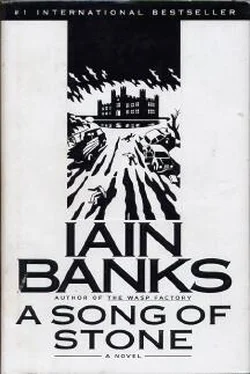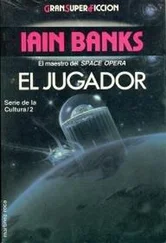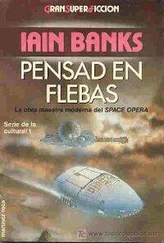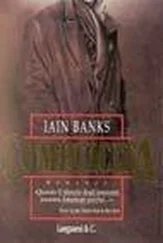Iain Banks - A Song Of Stone
Здесь есть возможность читать онлайн «Iain Banks - A Song Of Stone» весь текст электронной книги совершенно бесплатно (целиком полную версию без сокращений). В некоторых случаях можно слушать аудио, скачать через торрент в формате fb2 и присутствует краткое содержание. Год выпуска: 1997, Жанр: Современная проза, на английском языке. Описание произведения, (предисловие) а так же отзывы посетителей доступны на портале библиотеки ЛибКат.
- Название:A Song Of Stone
- Автор:
- Жанр:
- Год:1997
- ISBN:нет данных
- Рейтинг книги:4 / 5. Голосов: 1
-
Избранное:Добавить в избранное
- Отзывы:
-
Ваша оценка:
- 80
- 1
- 2
- 3
- 4
- 5
A Song Of Stone: краткое содержание, описание и аннотация
Предлагаем к чтению аннотацию, описание, краткое содержание или предисловие (зависит от того, что написал сам автор книги «A Song Of Stone»). Если вы не нашли необходимую информацию о книге — напишите в комментариях, мы постараемся отыскать её.
A Song Of Stone — читать онлайн бесплатно полную книгу (весь текст) целиком
Ниже представлен текст книги, разбитый по страницам. Система сохранения места последней прочитанной страницы, позволяет с удобством читать онлайн бесплатно книгу «A Song Of Stone», без необходимости каждый раз заново искать на чём Вы остановились. Поставьте закладку, и сможете в любой момент перейти на страницу, на которой закончили чтение.
Интервал:
Закладка:
… But the dawn is my more likely release. Or I might ignominious, this succumb to exposure sometime inside the night's cold kiss, relinquishing, like the castle, my last warmth to the wrapping sump of moving air.
I ought to shout and scream and curse, hurl imprecations at these fools, at least disturb the wretches” sleep on my last night, but I fear what other torture they might devise if I annoy them so, for from what I've heard and read and seen, the brutalised man, so deficient in every other type of imagination, displays a fine resourcefulness when it comes to concocting ingenious ways to hurt.
I can blame none of us, and everyone. We are all the dead and dying, we are all the walking wounded. The three of us, this ruined castle, these sad warriors, we none of us deserve our ends in this, but should not be surprised by that; it's a cause for remark, even celebration, when someone does receive their just deserts.
Castle, you should never have burned. That mill was tinder; kindling filled with air. You were stone. You felt the earthy rumble from its revolving wheels with ancient scorn, and yet you burned in its place, and now stand, but for your caved in, blackraftered skull, looking hardly altered from this outward, downdimmed view, but gutted, all the same, as I shall be soon. They have told me that they might set charges, to level you completely, but I think that it was said more to bring me down, rather than you. Would they waste good explosive, just to waste you? I don't believe so.
Castle, I did you a disservice saying that this could be any time; once your stones would have ensured protection as well anything might, but in the days of cannons and artillery, you only swing them to you, like compasses the loaded guns, and bring that fire down upon you all the quicker.
Perhaps we destroyed what you were a part of the instant steel struck stone in quarries, and mason's hammer and cannon's shell compound the injury alike. All is construction in the end, including this; a dying man addressing a burned out building. My ultimate mistake, my final folly. But then we are the naming beast, the animal that thinks with language, and all about us is called what we so choose, for lack of better terms, and everything we name means as far as we are concerned just what we want it to connote. And there is, anyway, a reciprocity of insult for our name calling here; for our fine, defining words tame nothing in the end, and should we ever fall victim to the unseen grammar of our life, we must brave the elements and suffer their indifference, full requited, in return.
The hawk is gone now. The descending darkness leaves you hanging alone like a single pale flame poised above the castle's husk, barely touched by a deep ruby glow emitted from the embers deep inside. Perhaps still the bird will return and peck my bindings loose, or maybe the remainder of those whose gun this was and who may well have been the lieutenant's ambushers this morning, on the road will suddenly attack, prevail against my tormentors and then free me, all overcome with gratitude and acknowledgement. Or the chilling wind and thickened cloud may presage snow, which will drift down and cover me and soften the contours of everything around, including the hearts of the soldiers here, so they'll take pity on me, and let me go.
Do I want an end too tidy? Or too loose? I do not know, my dears, though an answer will dawn on me, no doubt.
I think I want my death, now. Do I? Am I paradoxical? We are all that, too; in us the right feels and controls the left, the left the right, what we see is all inverted, and we are always in two minds.
Come dawn and cover me, come light and make me shade. From this razed place, erase me.
Life is death and death is life; to caress one is to embrace the other. Why, I have seen dead beasts, by mountain streams, by gas distended, quite pregnant with productive death. And you, my dear, you created our most fitting statement though I could never say this to you, never hint that I even felt this way by that one bloating of your own, when you gave birth, to death. (That we hid, that we did conceal, fearful for the only time of our closeness, threatened by all that we shared. It was after that still utterance of our love that you declined to articulate much else.)
Perhaps, my unfair fair one, you saw it clearer than the rest of us, and by never wanting to discover what we tried to find through you, knew it all the time, and so stayed true. Perhaps, however unjustly, your sex itself put you closer to what we, denied or denying it, had to struggle for. Perhaps you alone saw our fate from the start, gender and proclivity equipping you to harbour conceptions we could not.
Some rain falls on me; I lick the moisture from my lips. As no hawk has come down to tear my bonds and no liberating soldiers attacked, I have had to relieve myself, standing here. Should I be ashamed? I am not. Water is most of what we are, and we ourselves are but bubbles, the body a temporary eddy, a standing wave in the stream of our aggregated course. We spend our most formative months aquatic, in a life that even then is loaned to us, an independence that from the start has strings attached, and whether our end is a composite unbinding or a binding decomposition, hardly matters. It is enough to walk this shore and scuff our way on sandy symbols without caring whether that strand strangles us.
Still, as the warmth cools upon my leg, I shiver, suddenly afraid, as though the repetition of this childhood action brings with it the fearfulness of childhood too, and I confess that, like a child, I cry. Ah, self pity; I think we are at our most honest and sincere when we feel sorry for ourselves.
But my fear is most formality, my dear departed Sophist, a lipservice trembling, I'll admit, not stiff the body levies for itself, while the mind stays unastonished. And unconvinced that there is much reason to go on now apart from habit. If anything follows this existence, I might as well see it now rather than later, and if as I suspect the only meal that follows this aperitif is the little worms” feast, then why store up yet more coy memories to have to bid farewell when the inevitable comes round,?
As for the vulgar interest in seeing our lives” continuing result teasing out the present's knot a little further from the future, before it falls back into the past and tangles once again — I find no great compulsion to see for seeing's sake what I can't help but feel will still end up being more of the same. Every age, containing us, contains each other to the limit of our mutual understanding, and tomorrow, when it comes, will be but another day in a nearly endless procession of days upon days, and it will come and it will go, as all the rest have done and as we do too; for its own measure it will be, then for an infinitely longer time, not. And if we, swirled round inside that ever ebbing tide and sinking for our first and final time, are able to clutch at a few more of those straw days, I could believe that we do so not so much in the feeble expectation of saving ourselves, but more in the malicious hope of taking them down with us.
And what of superstition? The castle had a chapel once; our father, who is in the ground, had it excised. I stood, a young child, in the dim splendour of its window's great rosette, the day before the workmen came, crying at the thought of its removal, for purely sentimental reasons. Some days later, when that stained, dogmatic stillness had been removed, released from its metal sieve, I stood with you on the altar, blinking out at the living lushness of the summer countryside revealed.
The very intuition there must be something else beyond this physical world makes me guess it's wrong. We set ourselves UP too thoroughly in this, and if we must indulge in such anthropopathism at all, why then I'd claim that reality could hardly miss a chance so tempting, and must feel duty bound to let us down. The way things happen, just how they operate, includes an all embracing brusqueness, an encompassing lack of ceremony and respect against which we can shore all our pious holdings and most cherished institutions and which we may rail against and oppose for exactly as long as we live, but which includes all our aspirations and degradations, all our promises and lies and all we do and all we don't, and which sweeps us in the end aside with less effort than metaphor can convey.
Читать дальшеИнтервал:
Закладка:
Похожие книги на «A Song Of Stone»
Представляем Вашему вниманию похожие книги на «A Song Of Stone» списком для выбора. Мы отобрали схожую по названию и смыслу литературу в надежде предоставить читателям больше вариантов отыскать новые, интересные, ещё непрочитанные произведения.
Обсуждение, отзывы о книге «A Song Of Stone» и просто собственные мнения читателей. Оставьте ваши комментарии, напишите, что Вы думаете о произведении, его смысле или главных героях. Укажите что конкретно понравилось, а что нет, и почему Вы так считаете.












